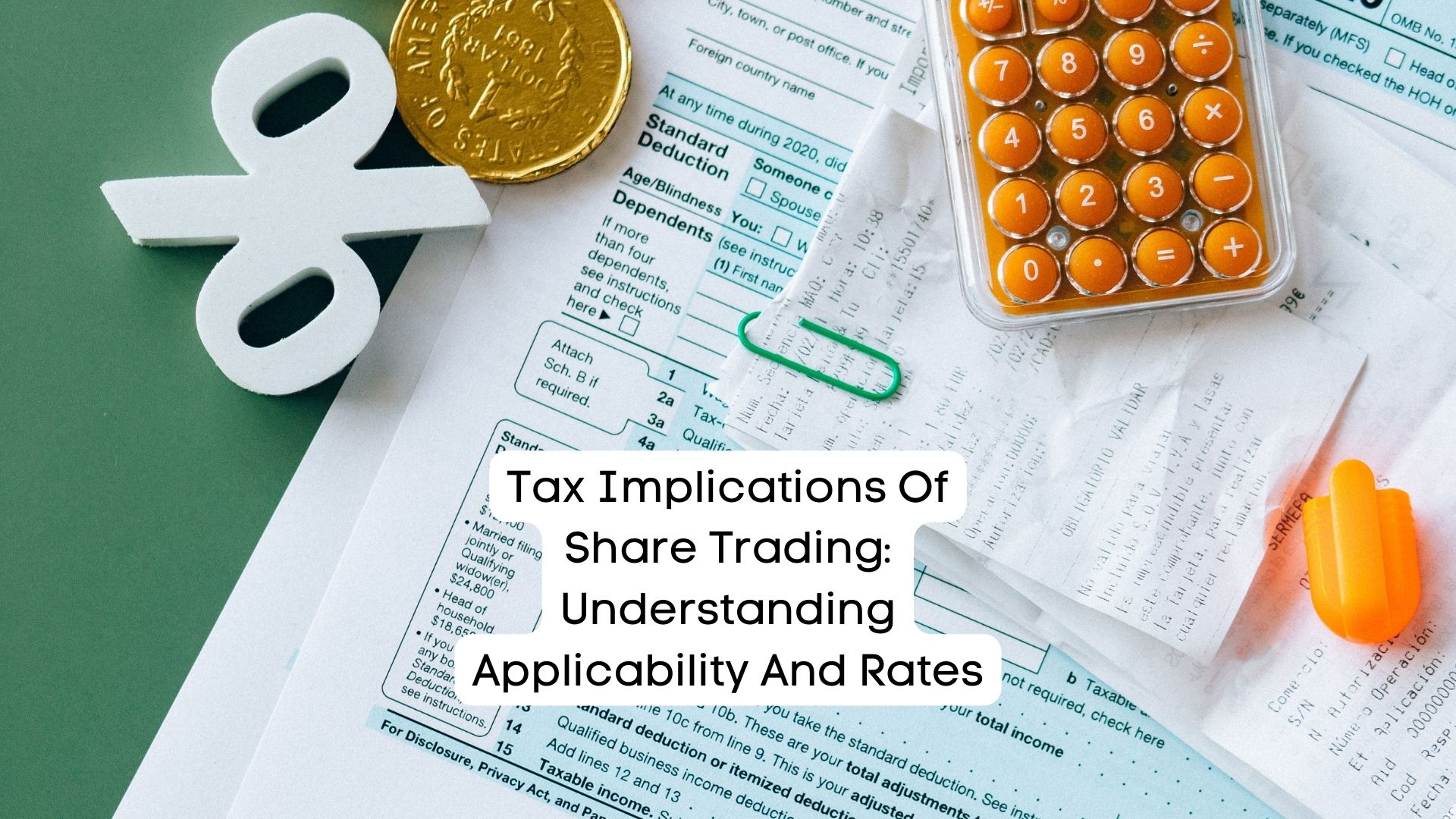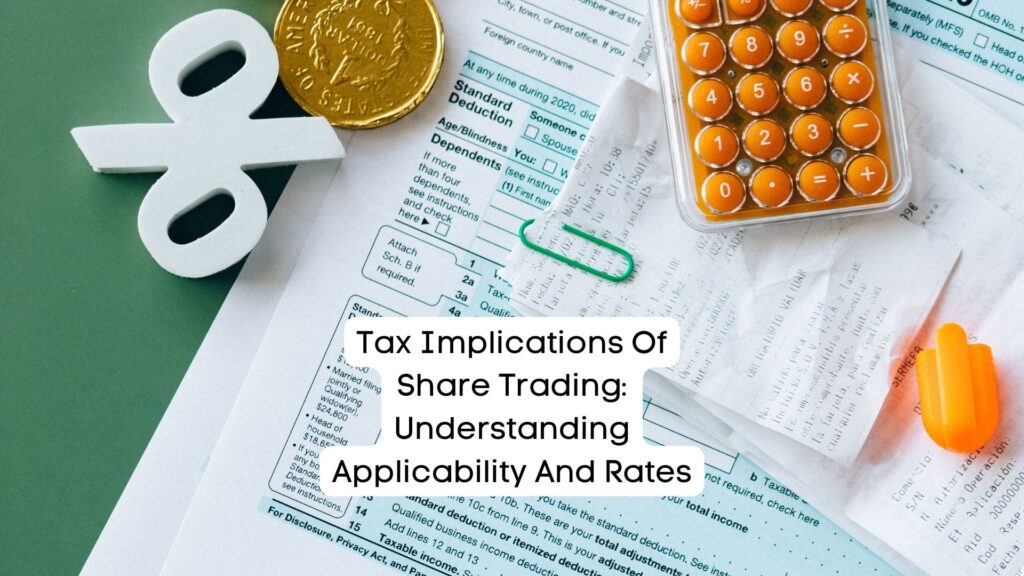
21 Feb Tax Implications of Share Trading: Understanding Applicability and Rates

When it comes to taxes, we’re usually familiar with how income from salary, rent, and business activities are taxed. However, the taxation of profits from stock-related transactions often perplexes individuals, particularly those who engage in stock trading to supplement their income, such as homemakers or retirees. As the annual Tax Season approaches, understanding the implications of income tax on share trading becomes crucial. This article delves into the complexities of tax applicability and rates concerning stock market transactions.
Investor vs. Trader Classification
Determining whether one falls under the category of an investor or a trader is essential, as each is subject to different taxation rules. The distinction between the two, as clarified by a circular issued by the Income Tax Department on March 2, 2016, sheds light on various aspects:
- Profits from Futures and Options (F&O) trading are considered legitimate business gains, not speculative income.
- Intraday Equity trading is deemed highly speculative and falls under corporate income.
- Investments in equity delivery, if held for over a year, qualify as Long-Term Capital Gains (LTCG) or Short-Term Capital Gains (STCG) if held for a shorter duration. However, frequent transactions in equity delivery are suggested to be reported as non-speculative income.
- Those primarily engaged in trading for a living should report their earnings as business income rather than capital gains.
Taxpayers now have the flexibility to choose how they wish to treat such income. However, once a decision is made, consistency is required in subsequent years unless significant changes occur. The Assessing Officer’s agreement is necessary for the chosen approach.
Understanding Trader and Investor Roles
In the stock market, investors commit capital to purchase securities with the expectation of financial returns, primarily focusing on long-term growth. In contrast, traders aim to profit from short-term price changes and market volatility, frequently buying and selling securities.
Taxation for Investors
For investors, taxation primarily revolves around Short-Term Capital Gains (STCG) and Long-Term Capital Gains (LTCG), depending on the holding period of the shares. Gains from assets held for more than a year are considered LTCG, while those held for a shorter duration are categorized as STCG.
Taxation for Traders
Traders’ income is considered business income, either speculative or non-speculative, based on trading activities. Reporting trading income as business income allows for the deduction of related expenses, subject to applicable tax rates.
Taxation on Capital Gains
Tax rates on long-term and short-term capital gains vary depending on the asset type, holding period, and Securities Transaction Tax (STT) payment. Equity-oriented mutual funds and stocks have different tax rates for LTCG and STCG.
Treatment of Losses
Both traders and investors can offset capital losses against capital gains, subject to certain conditions and limitations. Short-term and long-term capital losses have distinct treatment methods and carry-forward periods.
Speculative vs. Non-Speculative Business Income/Loss
Income from intraday trading is considered speculative business income, while income from trading Futures and Options (F&O) is classified as non-speculative business income. Losses from these activities can be carried forward for offsetting gains within specified periods.
Securities Transaction Tax (STT)
All transactions involving publicly traded equity shares are subject to STT, affecting the tax implications associated with such transactions.
Taxation of Unlisted Shares and Cryptocurrency
The sale of unlisted shares is taxed under the Capital Gains head, regardless of the holding period. Similarly, profits from cryptocurrency trading are taxed at standard rates, with losses only offsetting gains within the same asset class.
Income Tax Return Filing
Traders and investors have different Income Tax Return (ITR) filing requirements, depending on their sources of income and financial activities.
Conclusion
In conclusion, understanding the tax implications of share trading is essential for compliance with income tax regulations. Whether one is an investor or a trader, various factors such as holding periods, types of income, and applicable tax rates influence the taxation process. Therefore, staying informed and seeking professional guidance can help individuals navigate the complexities of share trading taxation effectively.


No Comments